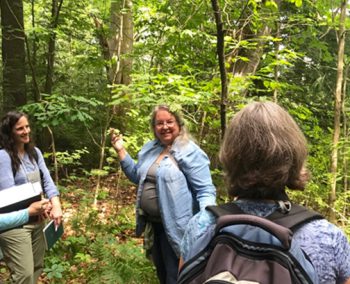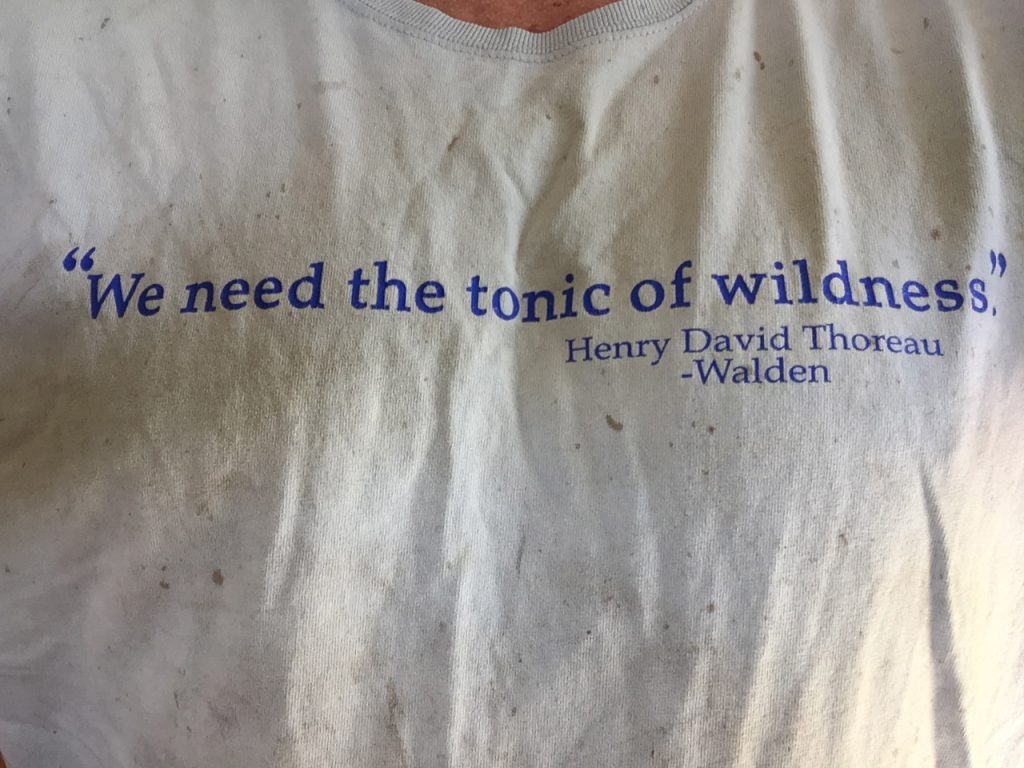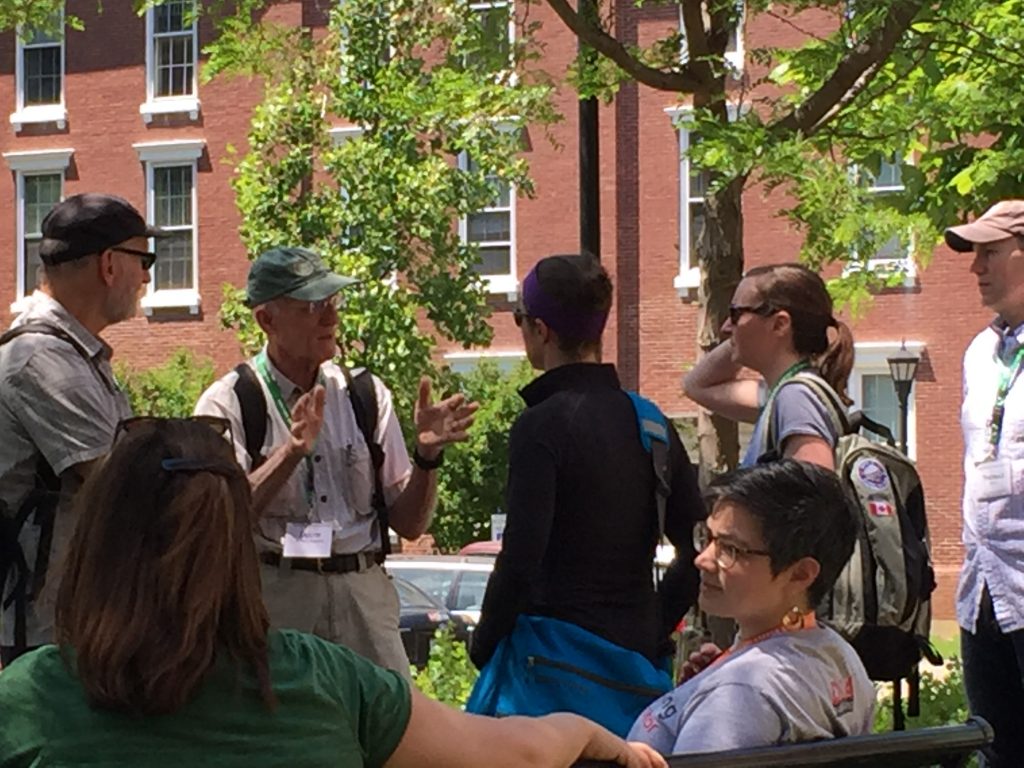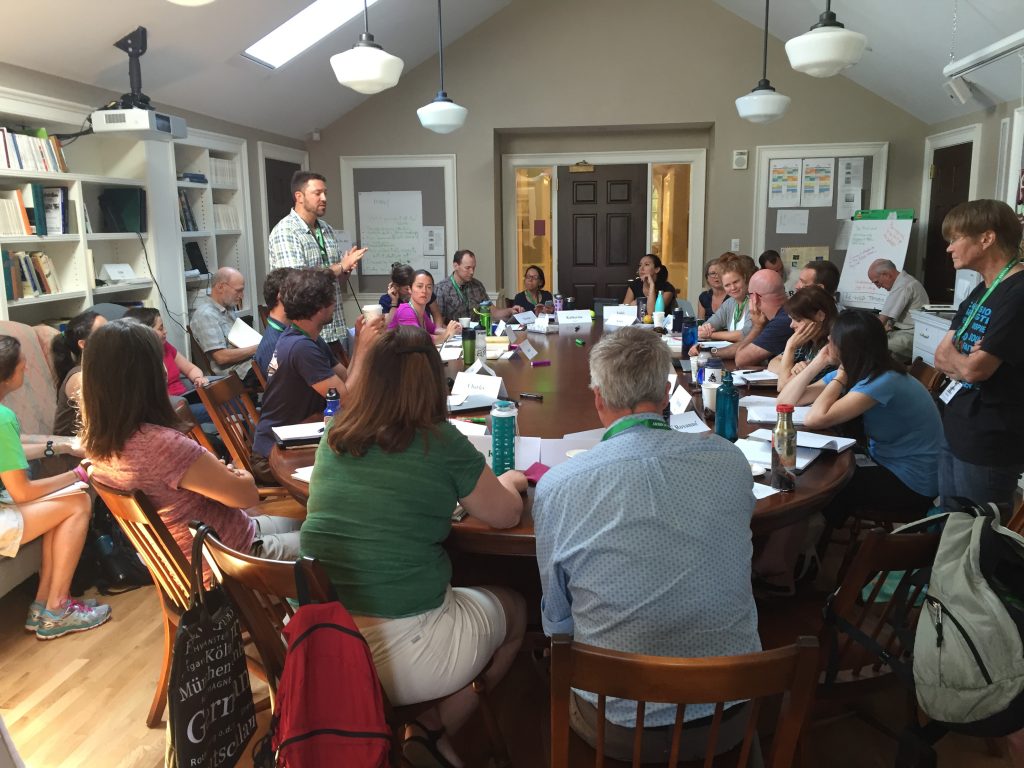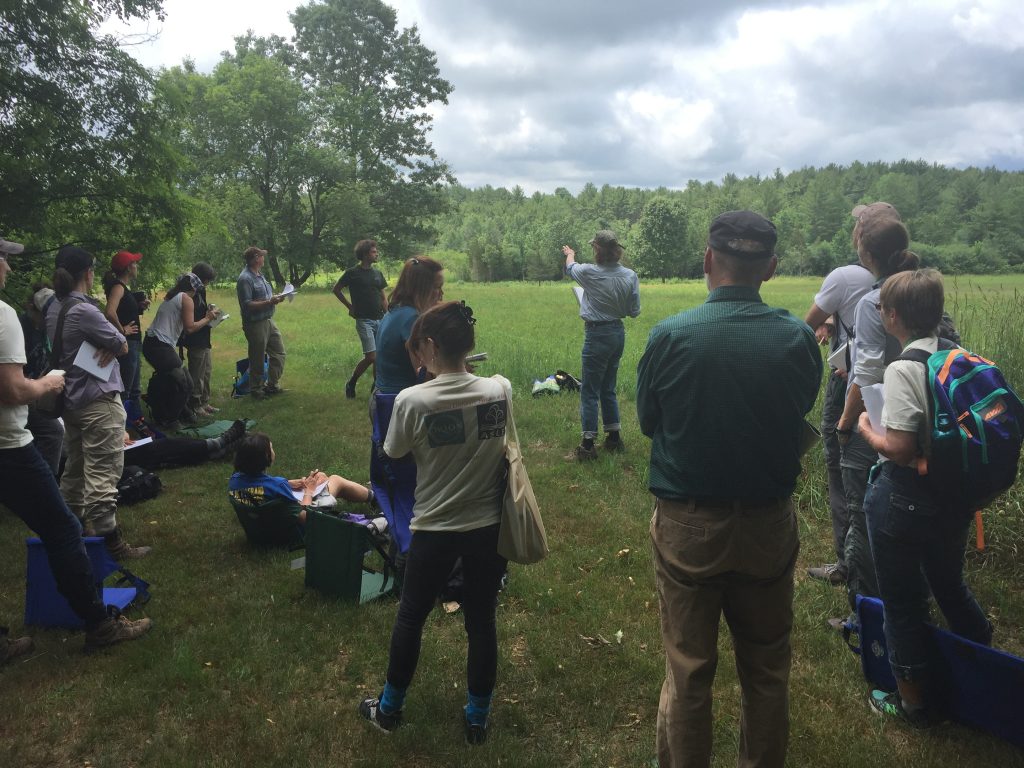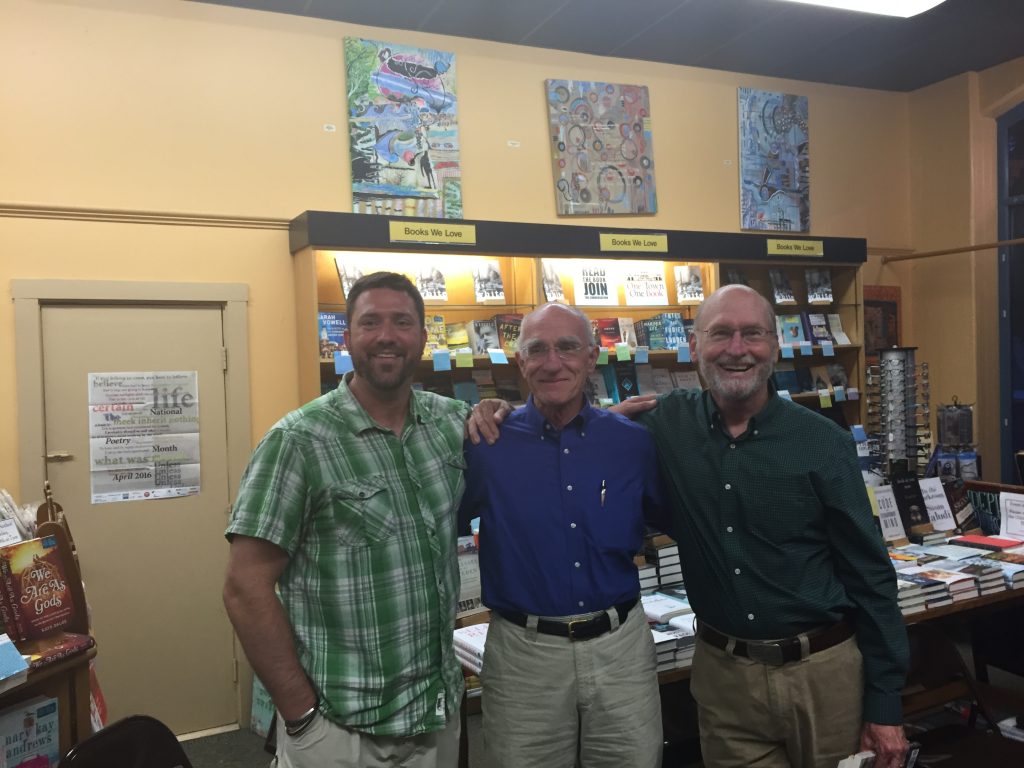In June we gathered for the Second Annual Environmental Literature Institute (ELI) at Phillips Exeter Academy. In the fall one of my collaborators, Stephen Siperstein, Choate Rosemary Hall Academy, summarized the week in a piece for ASLE News.
ELI 2.0 brought together secondary school teachers from around the country to Exeter Academy, New Hampshire for a week of professional development in the Environmental Humanities. Continuing to build on the goal of the 2014 ASLE strategic plan to improve public discourse about the environment through community-based, K-12, and undergraduate programs, provided a space for educators of all experience levels to develop courses and curricula for a variety of secondary school settings, to explore how environmental approaches could inform and enliven their teaching, and to build community in the Environmental Humanities.
Our days were filled with discussion, small group work, and time for individual reflection. We read and analyzed works of environmental literature, such as passages from Thoreau’s journal and Mary Oliver’s poetry. We shared resources and helped each other imagine and design ways to incorporate field-based learning and community projects into our environmental humanities classrooms, all while contextualizing such work within wider currents in the field and our own institutions. Among other topics, we also discussed teaching climate change, addressing questions of racial justice in the environmental literature classroom, and learning how to build environmentally-focused communities in our classrooms and institutions. In the words of one participant: “As we explored how to create a classroom of kids with compassion for each other and compassion for the environment, we were sitting around campfires together, we were swimming in a creek, we were taking walks in the woods, we were swinging from ropes in trees. We were becoming the kind of community we talked about.”
Renowned author and plant biologist Robin Wall Kimmerer joined us for a keynote address on the grammar of animacy and the honorable harvest, and led an exuberant field session that highlighted how to put her ideas into practice in the classroom (and how the forest is itself a vibrant environmental humanities classroom). With both her words and her presence, Kimmerer helped us envision the entire enterprise of environmental humanities education as one of reciprocity—between teachers and students, between institutions and communities, and perhaps most importantly between the human and the nonhuman (all of us being, according to Kimmerer, kin). It is gratitude, Kimmerer emphasized in her talk, that pulls us into relations, and it was gratitude that defined the week.
Later in the week we were joined by master teachers Rochelle Johnson and Clare Walker Leslie. Rochelle led sessions on place-based pedagogy and teaching Thoreau in our current political and social moment, while Clare guided a field session in the art of seeing through drawing. Education journalist Michael Brosnan, UNH Professor Diane Freedman, and prominent climate activist and storyteller Devi Lockwood also contributed to the community, adding their perspectives and expertise.
The week concluded with a forward-looking session and time for synthesis: How will we build on the ideas, connection, and energy of this emerging community? How can ASLE welcome even more secondary school educators into its fold? What kinds of Environmental Humanities communities can exist in our classrooms, and beyond them? Between the known and the unknown, the participants at ELI staked out common ground together, and left energized and grateful, ready to return to their own classrooms and institutions this fall and do the difficult (and rewarding) work of building this field from the ground up, student by student.

